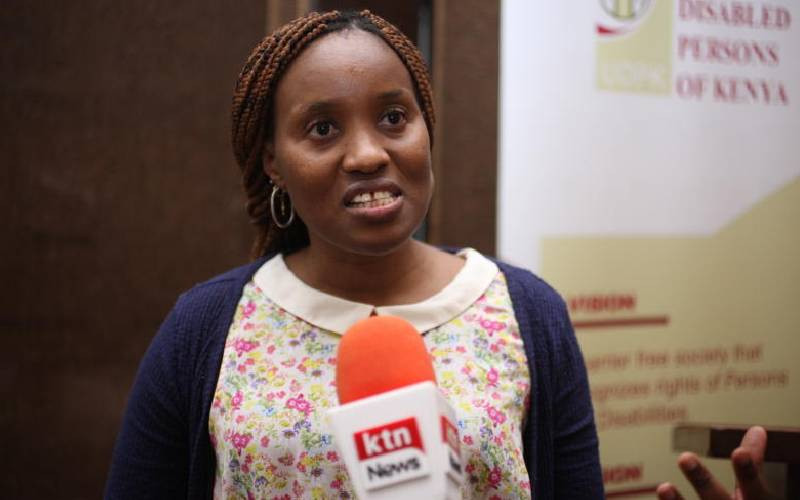By JOHN MUTURI
There are many reasons why children experience learning difficulties. For instance, a child is of below average ability and as a result is expected to have difficulties with schoolwork — a pupil like this has a general learning difficulty. In other instances, a child is of at least average ability, uses language well in discussion, gives an impression of being bright, and yet has unexpected difficulties with reading, writing, and spelling — a pupil like this has a specific learning difficulty, often referred to as ‘dyslexia.’
For a dyslexic child, there is a major disparity between her apparently good ability and her low educational progress. The effects of dyslexia vary from mild difficulties with reading, writing and spelling to complete illiteracy. In order to provide appropriate help, early intervention is vital.
A dyslexic child whose condition has not been properly identified may have a poor self-image because she/he assumes she’s not clever. She may lack confidence with any task involving literacy, describing herself as ‘stupid.’ The longer the child’s learning problem goes undiagnosed, then the worse her psychological problem will become. Early identification is therefore important.
A dyslexic child experiences some (or all) of the following problems in learning:
• Lack of progress in reading when it is taught in school by normal methods.
• Confusion of letters that have a similar shape-such as b/p, p/q, u/n, b/d, p/d.
• Difficulty in learning even the basic rules of spelling, and misspelling words that she has previously learned.
• Failure to learn to write, and producing letters that are frequently reversed or badly formed.
• Reversing complete words when reading words such as ‘was’ for ‘saw’, or ‘god’ for ‘dog’.
• Poor short-term memory, causing problems when she is asked to follow an instruction containing more than one piece of information;
Only a psychologist can make a diagnosis of dyslexia, having fully assessed the child’s:
* Level of intelligence. Since one of the criteria for diagnosing dyslexia is that a child should be of at least average intelligence, this must be measured using a standardised intelligence test. Weaknesses with specific learning skills will also be identified for instance, in auditory or visual short-term memory, pattern recognition, ability to recall sequences, spatial skills.
*Pattern of errors. In addition to quantifying the child’s educational attainments, the psychologist considers the types of mistakes the child makes in reading, writing, spelling and mathematics, since this will enable future learning support to be targeted most effectively.
*Learning attitude. Her attitude towards learning partly determines her level of success or failure. Dyslexic children often appear to make little effort in any task involving literacy. But they should not be accused of being lazy.
Stay informed. Subscribe to our newsletter
*Developmental background. A diagnosis of dyslexia can only be made after the elimination of other external factors that could undermine progress in school. These factors could include stress at home, for instance, recent divorce or bereavement, lack of stimulation in the pre—school years, for instance, due to long periods of hospitalisation, and hearing or visual difficulties.
The cause of dyslexia is not known although most psychologists now accept that it is related to the brain’s neurological structure. There is no cure either. However, dyslexic children can be helped through the provision of multi—sensory teaching methods, which combine hearing, seeing, touch and movement. Dyslexic children have problems processing information through at least one of these senses. With proper professional help, a dyslexic child can progress successfully through primary and high school, and even go higher.
 The Standard Group Plc is a
multi-media organization with investments in media platforms spanning newspaper
print operations, television, radio broadcasting, digital and online services. The
Standard Group is recognized as a leading multi-media house in Kenya with a key
influence in matters of national and international interest.
The Standard Group Plc is a
multi-media organization with investments in media platforms spanning newspaper
print operations, television, radio broadcasting, digital and online services. The
Standard Group is recognized as a leading multi-media house in Kenya with a key
influence in matters of national and international interest.
 The Standard Group Plc is a
multi-media organization with investments in media platforms spanning newspaper
print operations, television, radio broadcasting, digital and online services. The
Standard Group is recognized as a leading multi-media house in Kenya with a key
influence in matters of national and international interest.
The Standard Group Plc is a
multi-media organization with investments in media platforms spanning newspaper
print operations, television, radio broadcasting, digital and online services. The
Standard Group is recognized as a leading multi-media house in Kenya with a key
influence in matters of national and international interest.








